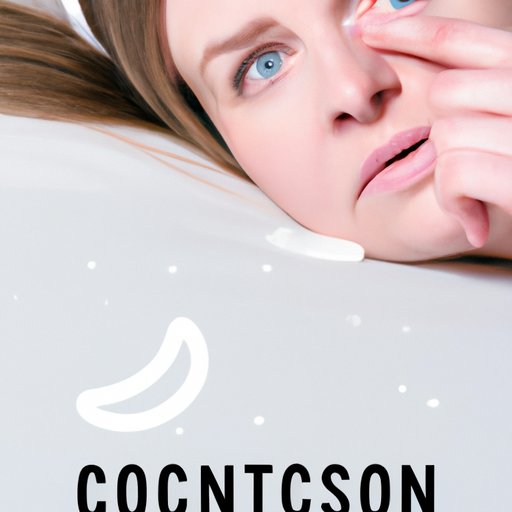
I. Introduction
Most contact lens wearers are aware of the importance of removing and cleaning their lenses at night. However, some people still choose to sleep in their contacts due to convenience or forgetfulness. This article explores what can happen when you sleep in contact lenses, the risks and dangers associated with it, and alternatives to consider.
II. Risks and Dangers
Sleeping in contact lenses increases the risk of several eye health issues, including corneal abrasions, oxygen deprivation, and vision loss. A corneal abrasion is a scratch on the surface of the eye, which can be painful and lead to infection. Oxygen deprivation occurs when the contact lenses block the flow of oxygen to the eye, which can damage the cornea over time. According to a recent study, the risk of a corneal infection is over 6 times higher for people who sleep in their contacts versus those who don’t.
III. Eye Infections
Eye infections are a serious concern for contact lens wearers, and sleeping in contact lenses increases the risk of these infections. One common infection is bacterial keratitis, which can cause pain, redness, and sensitivity to light. If left untreated, it can lead to scarring and vision loss. Other infections that can occur include fungal or viral infections. Some symptoms to watch out for include blurry vision, discharge, pain, and redness. If you suspect an eye infection, it is crucial to see an eye doctor immediately.
IV. The Importance of Cleaning
Proper cleaning and care of contact lenses are essential to maintaining good eye health. Neglecting these steps can lead to serious complications. Many people make common mistakes, such as using tap water or saliva to clean their lenses, reusing old solution, or not washing their hands before handling their lenses. These mistakes can introduce harmful bacteria into the eye and lead to infections or corneal damage. Always follow the instructions provided by your eye doctor and avoid taking shortcuts.
V. Alternatives to Contacts
Some people may find that contact lenses are not a good option for them, and there are several alternatives to consider. Glasses are a popular choice that doesn’t require any daily maintenance. LASIK surgery is a more permanent solution that corrects vision and eliminates the need for contacts or glasses. Intraocular lenses are also an option for people who struggle with cataracts or other eye conditions. Each option has its pros and cons, and it’s important to speak with an eye doctor to determine what is best for you.
VI. Real-Life Stories
There are many real-life stories of people who have experienced issues related to sleeping in contact lenses. Some have even lost their vision due to severe infections or corneal damage. It’s crucial to take these risks seriously and prioritize your eye health. By hearing from others who have experienced these problems, you can learn from their mistakes and avoid making the same ones.
VII. Best Practices and Tips
For those who choose to wear contact lenses, it’s essential to follow best practices and take steps to reduce the risk of complications. Always wash your hands before handling lenses, and never share them with others. Use proper cleaning solution and avoid using tap water or saliva. Take breaks from contacts when possible and give your eyes a chance to breathe. If your contacts become uncomfortable or cause pain, remove them immediately and speak to your eye doctor.
VIII. Conclusion
While sleeping in contact lenses may seem like a minor inconvenience, it can have serious consequences for your eye health. Taking care of your lenses properly is crucial to reduce the risk of complications. However, it’s also important to consider alternative options if you find that contact lenses are not working for you. By prioritizing your eye health, you can ensure that your vision remains as clear and healthy as possible.





